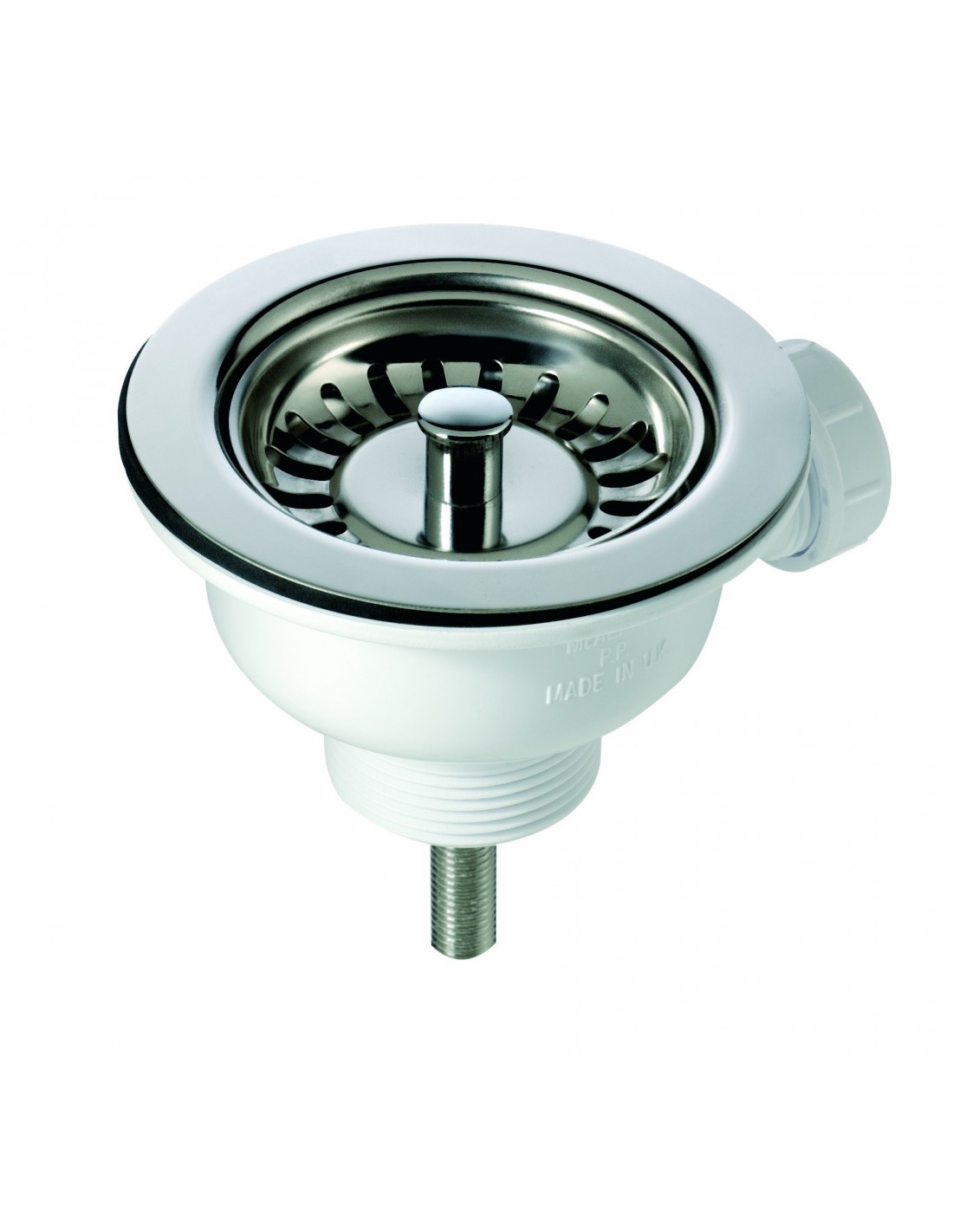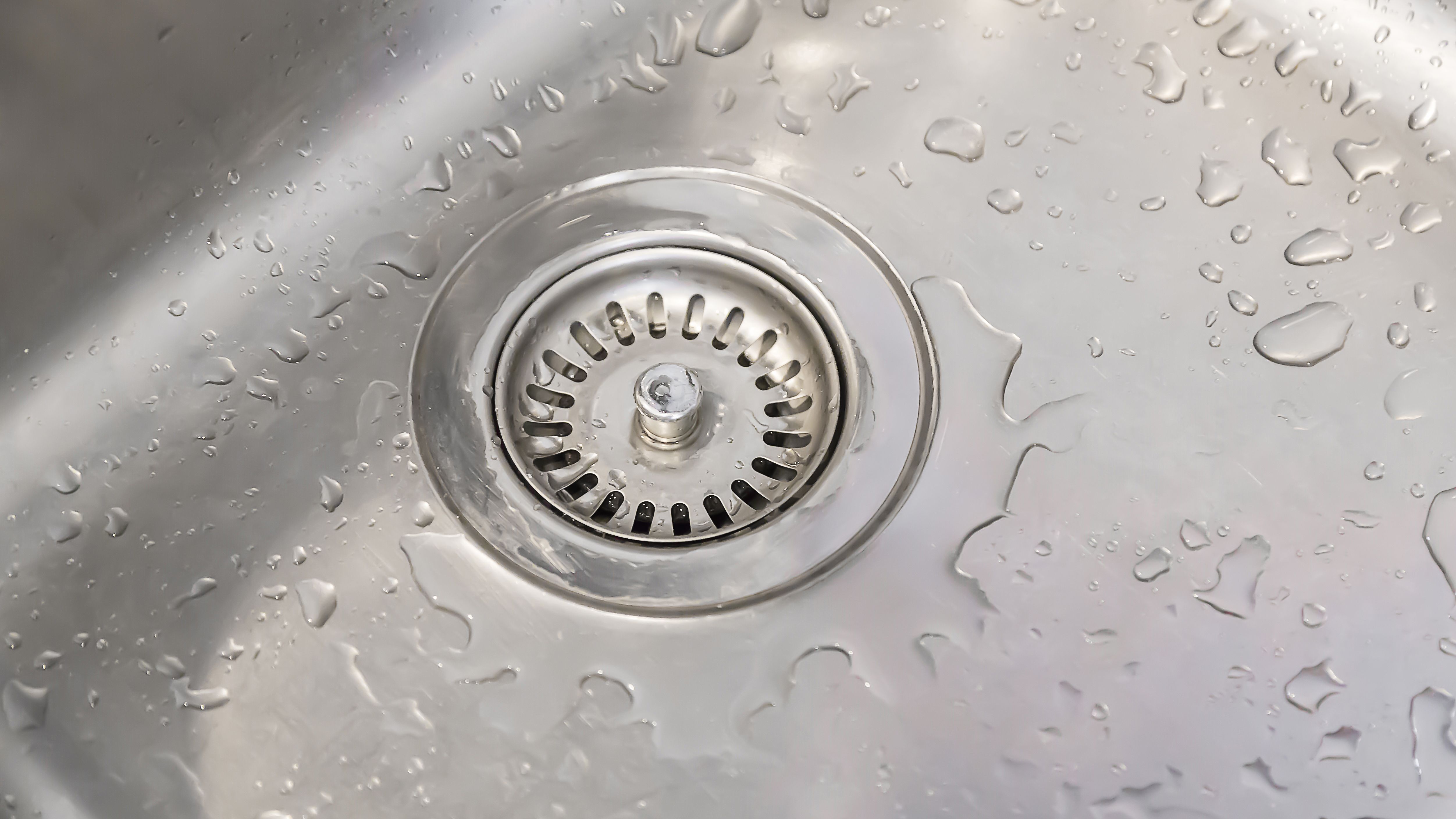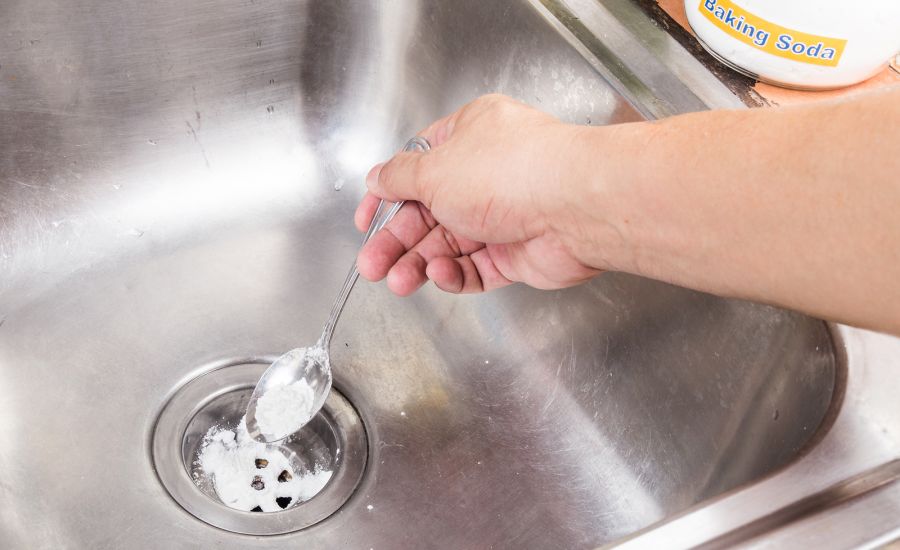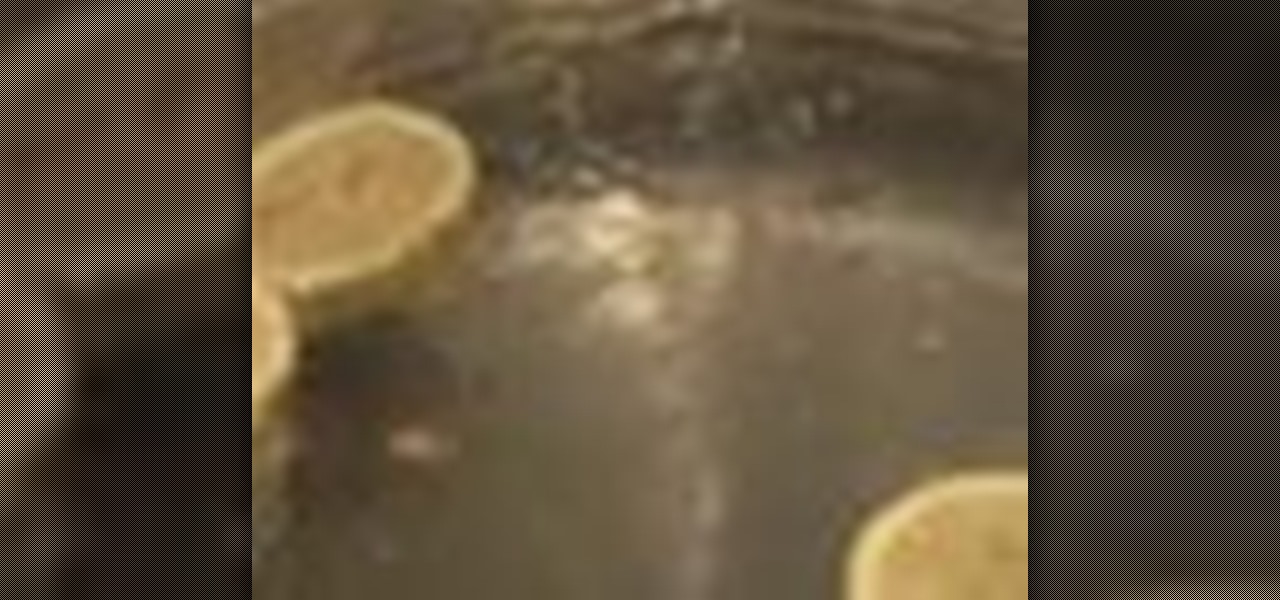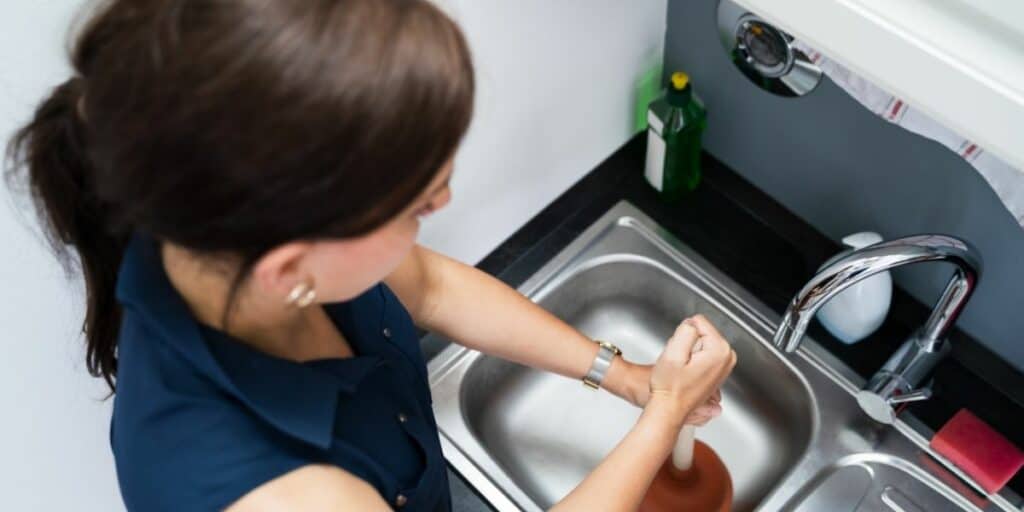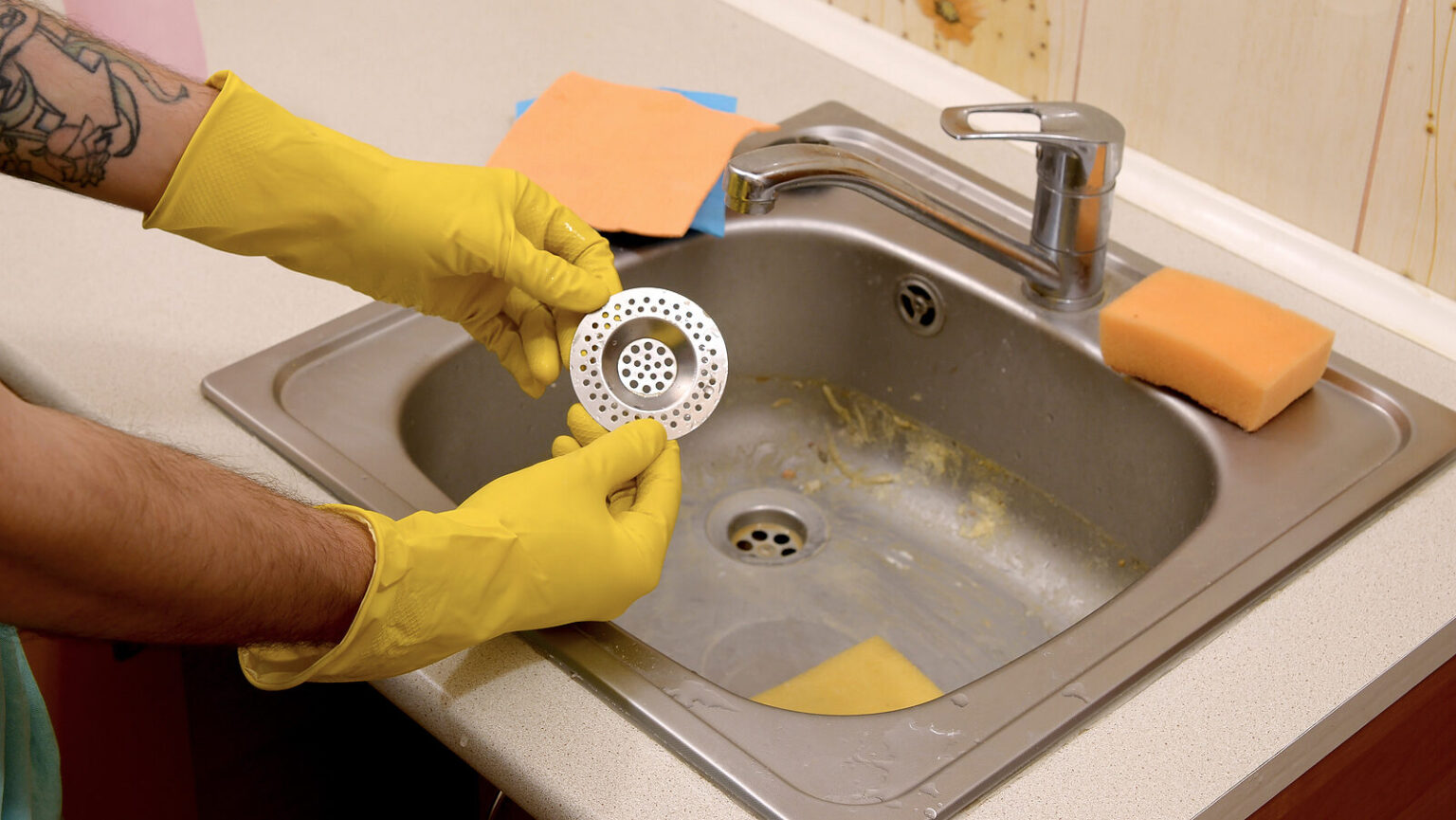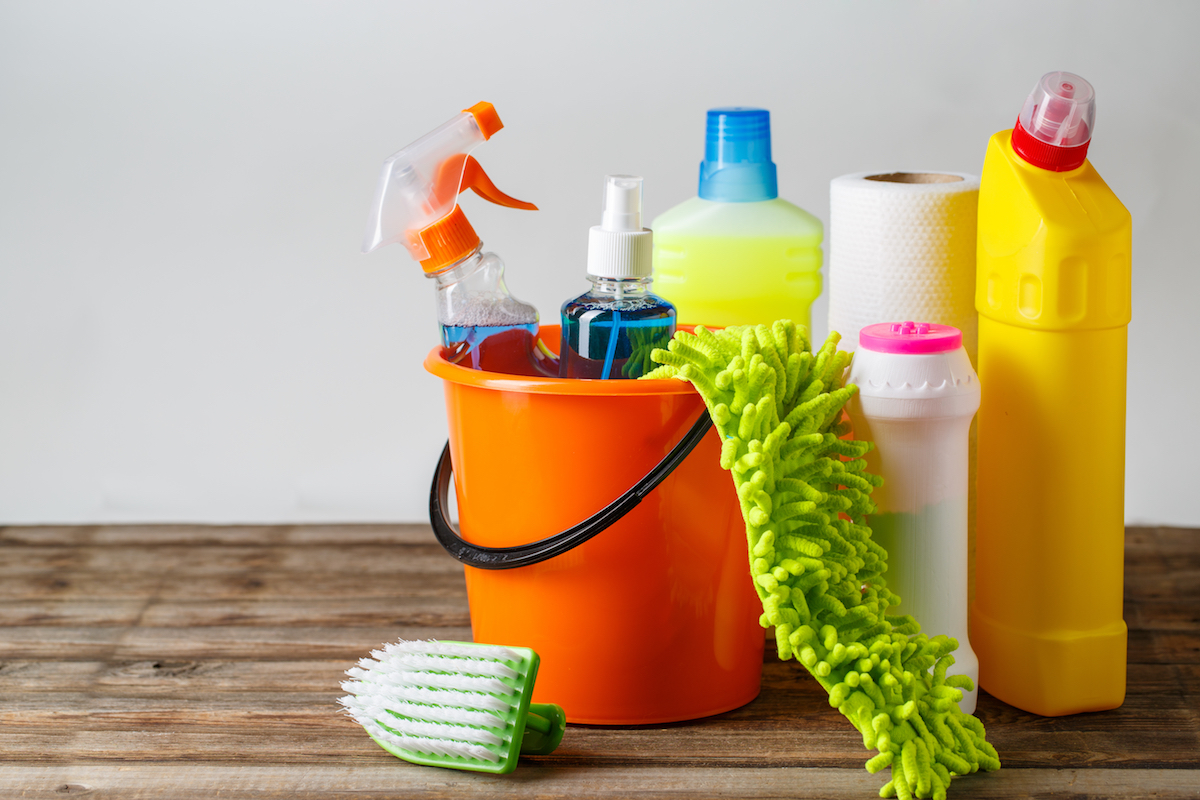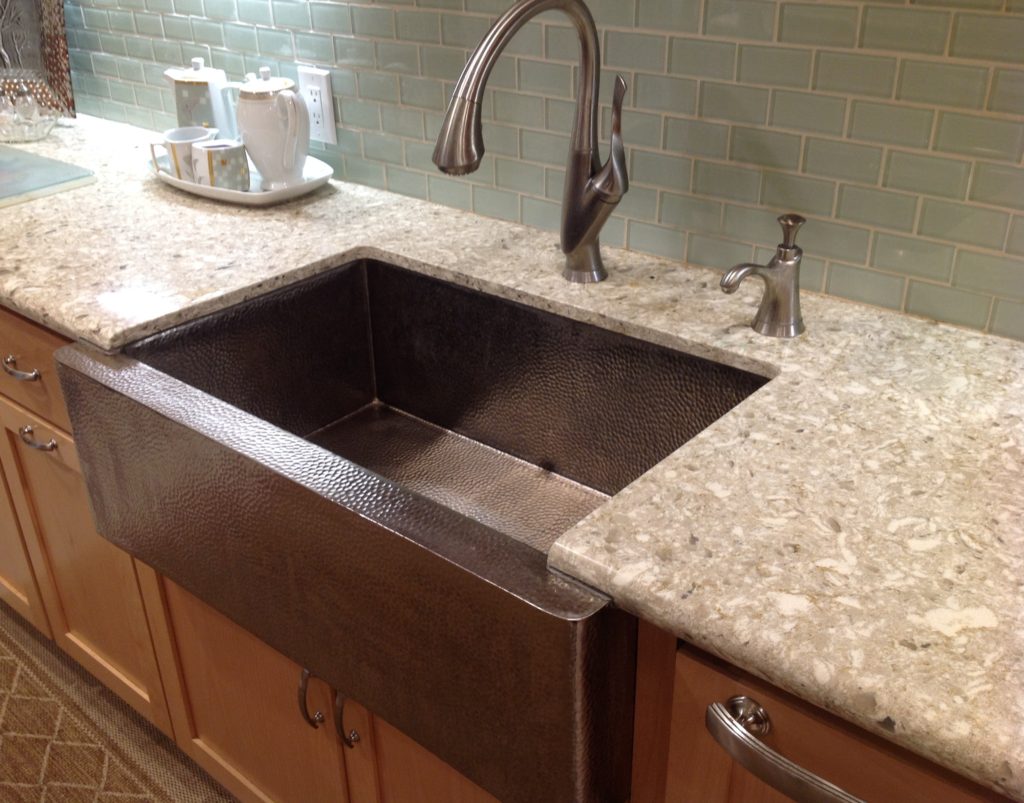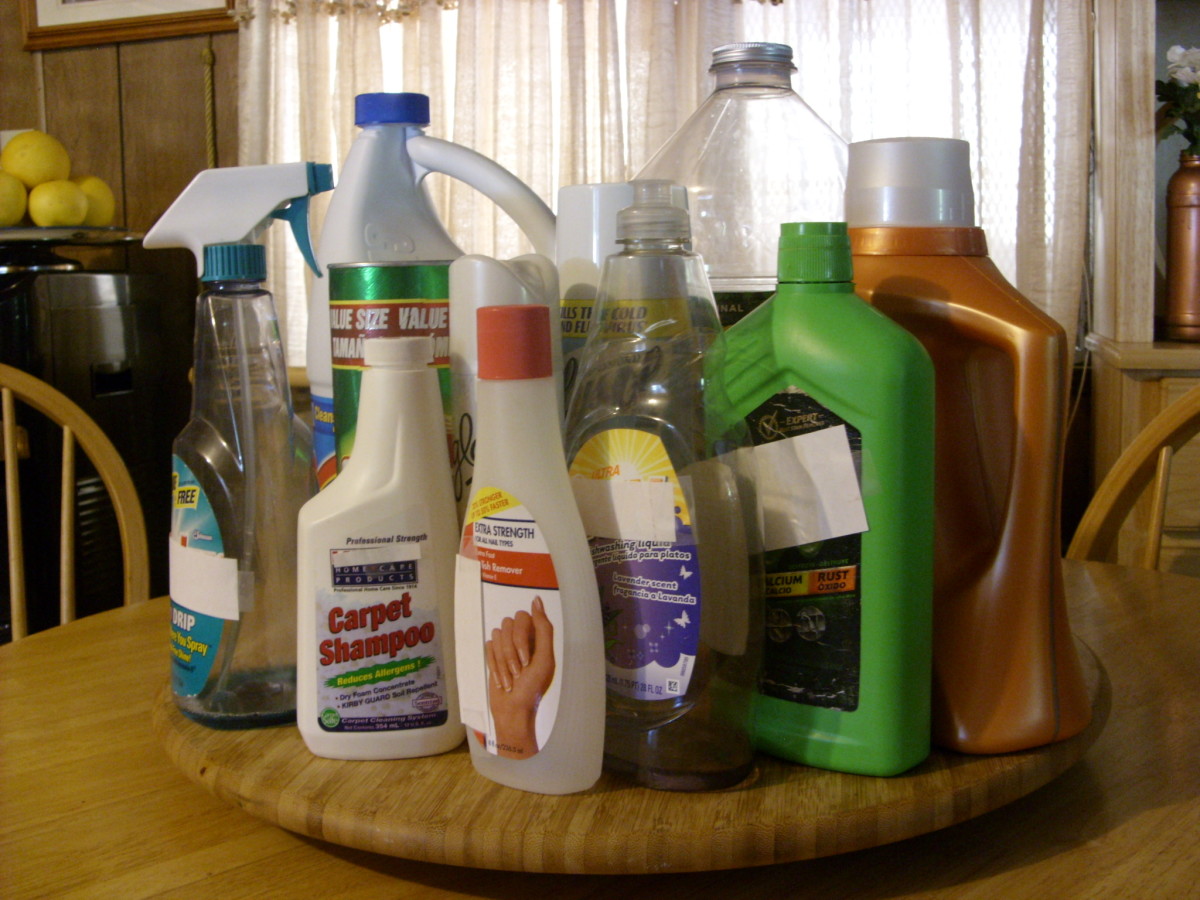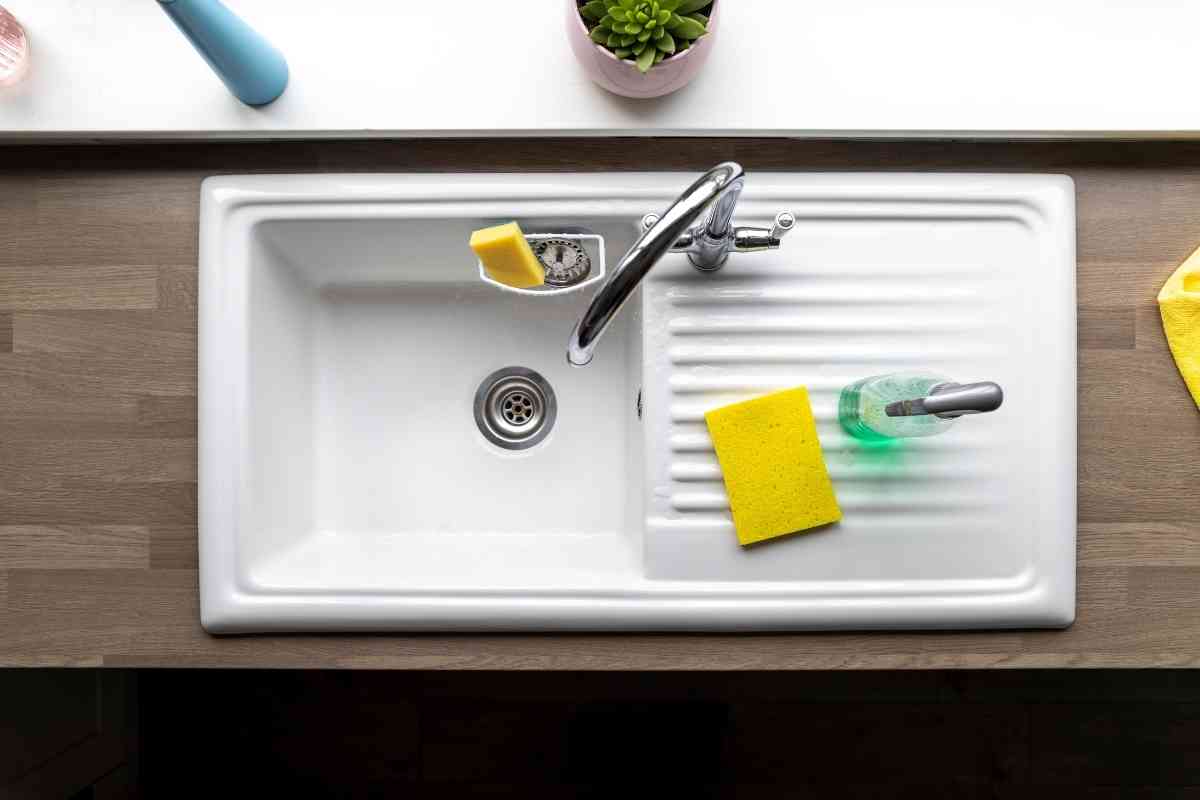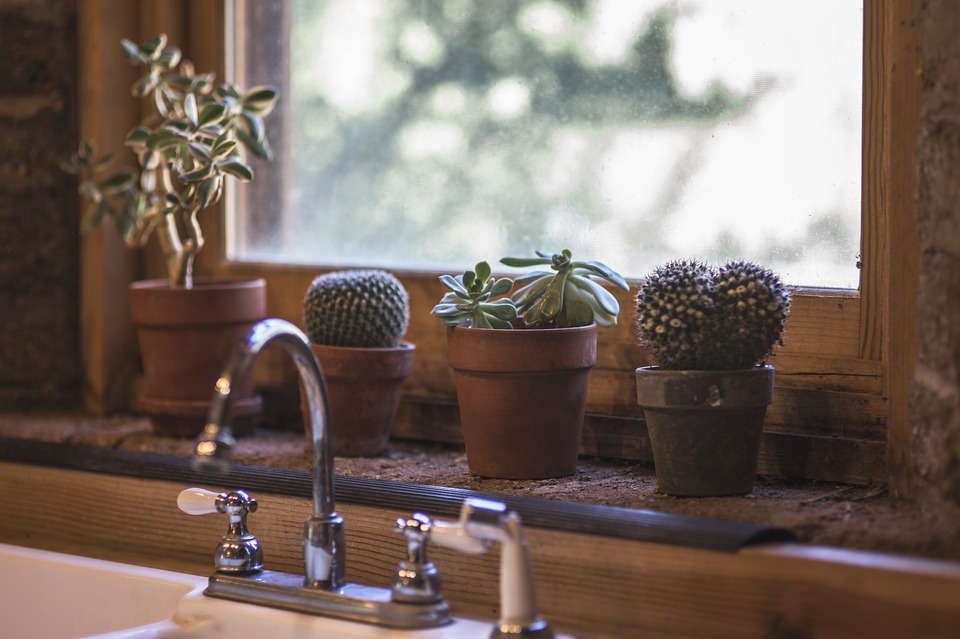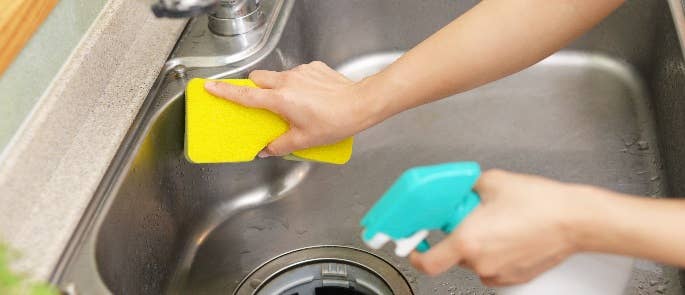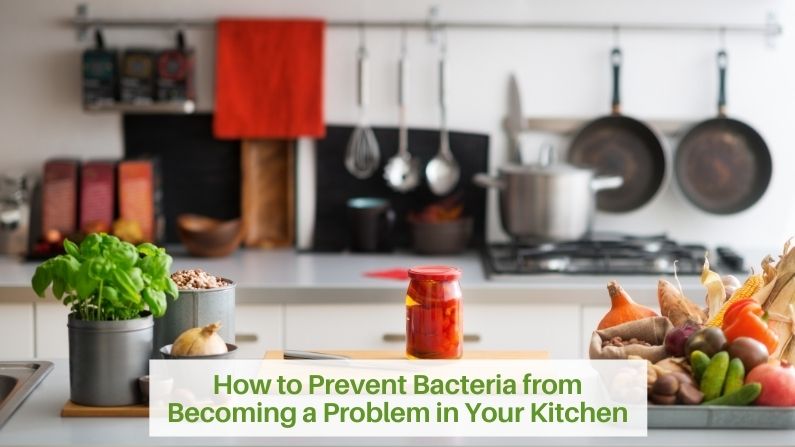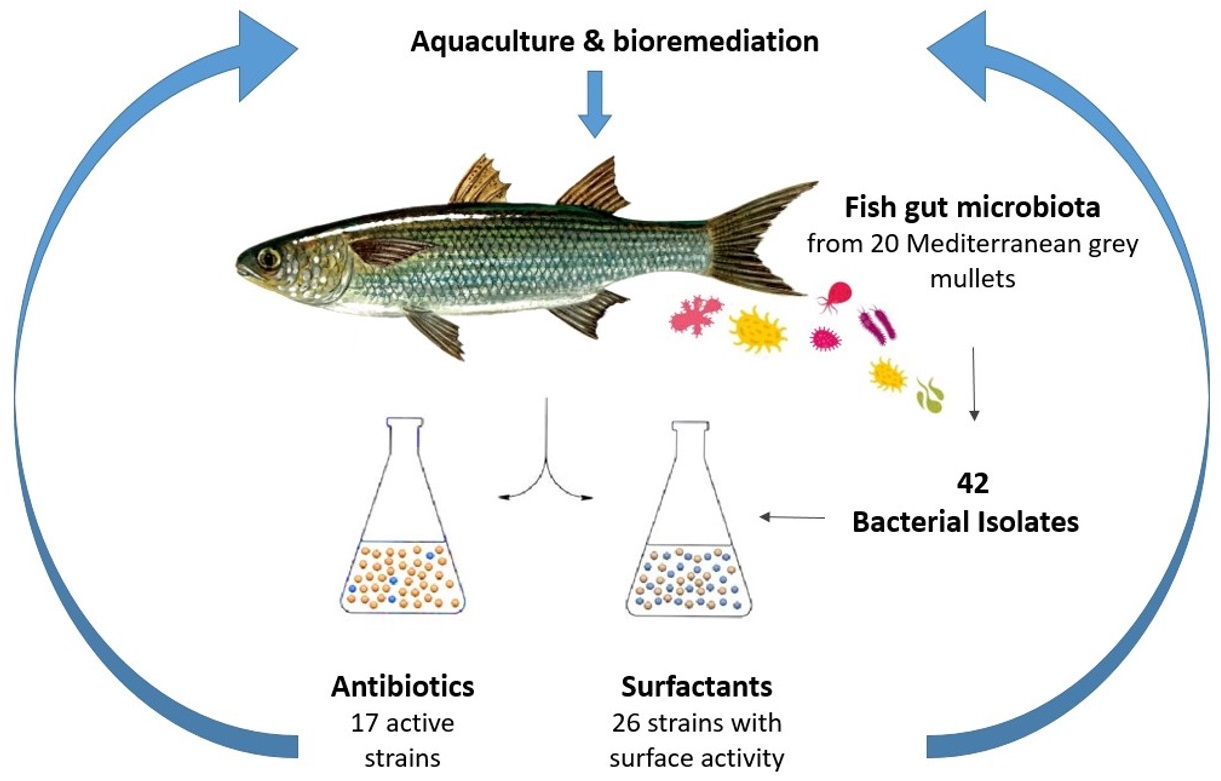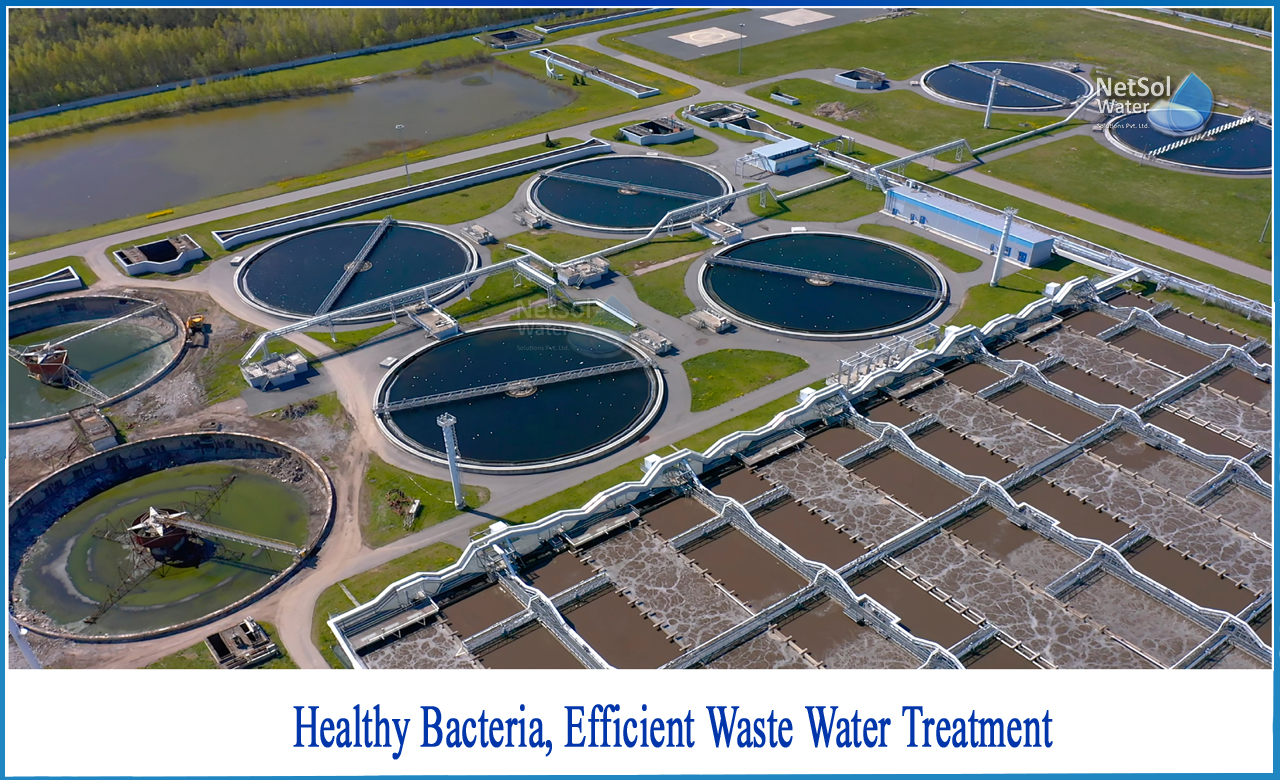There's nothing worse than walking into your kitchen and being hit with a foul odor coming from your sink. Kitchen sink waste smells can be caused by a variety of factors, and identifying the source is the first step in getting rid of them. One of the main causes of these unpleasant smells is food debris and grease buildup in the drain. When food particles get stuck in the pipes, they can start to decompose, producing a strong odor. Another common culprit is a clog in the pipes. This can be caused by a buildup of food, hair, or other debris, creating a stagnant pool of water that can emit a musty smell. Additionally, if your sink has a garbage disposal, it could be the source of the odor. Food scraps can get stuck in the disposal and start to rot, causing a foul smell to waft up from the drain.1. Causes of Kitchen Sink Waste Smells
Fortunately, there are several simple and effective ways to banish kitchen sink waste smells and have your kitchen smelling fresh once again. The first step is to thoroughly clean your sink and drain. Use a mixture of hot water and dish soap to scrub the sink and remove any buildup. Then, pour a cup of baking soda down the drain followed by a cup of vinegar. The combination of these two ingredients will create a chemical reaction that helps break down any lingering debris and eliminate odors. If your sink has a garbage disposal, you can also try grinding up a lemon or orange peel to help freshen the disposal and mask any unpleasant smells.2. How to Get Rid of Kitchen Sink Waste Smells
If you prefer to use natural remedies, there are several options that can help neutralize kitchen sink waste smells. One effective method is to pour a mixture of equal parts water and white vinegar down the drain. Let it sit for 30 minutes, then rinse with hot water. You can also add a few drops of essential oils, such as lemon or peppermint, to the mixture for a pleasant scent. Baking soda can also be used as a natural deodorizer. Sprinkle some down the drain and let it sit for 15 minutes before rinsing with hot water.3. Natural Remedies for Kitchen Sink Waste Smells
Aside from baking soda and vinegar, there are other common household products that can help eliminate kitchen sink waste smells. For example, hydrogen peroxide is a powerful disinfectant that can help kill bacteria and eliminate odors. Simply pour a small amount down the drain and let it sit for 10 minutes before rinsing. You can also use a mixture of lemon juice and salt to scrub the sink and drain. The acid in the lemon juice helps break down any grime, while the salt acts as a mild abrasive.4. Common Household Products That Can Help with Kitchen Sink Waste Smells
If home remedies aren't effective in getting rid of the smell, it may be time to call in a professional plumber. They can use specialized tools and techniques to thoroughly clean out your pipes and remove any stubborn clogs or buildup. In some cases, the smell may be coming from a larger issue, such as a broken seal or a leak in the pipes. A professional can identify and fix these issues to prevent future odors.5. Professional Solutions for Kitchen Sink Waste Smells
The best way to deal with kitchen sink waste smells is to prevent them from happening in the first place. Be mindful of what you put down the drain and try to avoid dumping large amounts of food or grease. Use a sink strainer to catch any food scraps and dispose of them in the trash. Regularly clean your sink and drain using the methods mentioned above to prevent buildup and bacteria growth. You can also pour boiling water down the drain once a week to help break down any potential clogs.6. Preventing Kitchen Sink Waste Smells in the Future
Proper cleaning and maintenance of your kitchen sink is key to avoiding unpleasant smells in the future. Make sure to regularly clean the sink and drain with hot water and dish soap. You can also use a mixture of baking soda and water to scrub away any grime or buildup. If you have a garbage disposal, it's important to keep it clean as well. Run it regularly and avoid putting large, hard items down the disposal that could damage it.7. How to Clean and Maintain Your Kitchen Sink to Avoid Smells
If you're a fan of DIY solutions, there are several methods you can try to get rid of kitchen sink waste smells. One popular method is to pour a mixture of hot water and dish soap down the drain and let it sit for 15 minutes. Then, scrub the sink and rinse with hot water. You can also add a few drops of essential oils for a fresh scent. Another DIY solution is to freeze vinegar in ice cube trays and run them through your garbage disposal. The ice helps to sharpen the blades, while the vinegar helps clean and deodorize the disposal.8. DIY Methods for Eliminating Kitchen Sink Waste Smells
Bacteria play a significant role in creating kitchen sink waste smells, which is why proper cleaning and maintenance is so important. When food particles and other debris get stuck in the drain, they start to decompose and produce a foul odor. Bacteria thrive in these conditions, which is why it's crucial to keep your sink and drain clean and free of any potential food sources.9. Understanding the Role of Bacteria in Kitchen Sink Waste Smells
There are a few common mistakes that homeowners make that can actually make kitchen sink waste smells worse. One of the biggest mistakes is using chemical drain cleaners. Not only are they harmful to the environment, but they can also damage your pipes and make the problem worse in the long run. Stick to natural or professional solutions for the best results. Another mistake is ignoring the problem and hoping it will go away on its own. If you notice a persistent smell coming from your sink, it's important to take action and address the issue before it becomes more severe. In conclusion, kitchen sink waste smells can be a major nuisance, but with the right techniques and preventative measures, you can keep your kitchen smelling fresh and clean. By understanding the causes of these odors and using natural or professional solutions to eliminate them, you can enjoy a fresh and odor-free kitchen sink. Remember to regularly clean and maintain your sink to prevent future smells and don't hesitate to seek professional help if needed.10. Common Mistakes That Can Make Kitchen Sink Waste Smells Worse
The Culprit Behind That Unpleasant Kitchen Sink Odor: Built-Up Waste

Understanding the Cause of Unpleasant Odors
:max_bytes(150000):strip_icc()/why-does-my-kitchen-sink-smell-like-sewage-4707719_06_Citrus-Peels-Ice-and-Salt-9013424033674901bb333de977aae138.jpg) When it comes to designing a house, the kitchen is often considered the heart of the home. It is where meals are prepared, family gatherings take place, and memories are made. However, despite its importance, the kitchen is also a hot spot for unpleasant odors. One of the most common sources of these odors is the kitchen sink. The build-up of waste in the kitchen sink can lead to a foul smell that can quickly spread throughout the entire house.
Kitchen Sink Waste: The Culprit
The kitchen sink is used for a variety of tasks, from washing dishes to disposing of food scraps. Over time, these activities can lead to a build-up of waste in the sink, including food particles, grease, and soap scum. This build-up can create the perfect environment for bacteria to thrive, resulting in a foul odor emanating from the sink.
The Role of Bacteria
Bacteria are a natural part of our environment, and they play a crucial role in the decomposition of organic matter. However, when bacteria grow and multiply in our kitchen sink, it can lead to unpleasant odors. The bacteria feed on the food particles and grease in the sink, breaking them down and releasing foul-smelling gases as a byproduct.
When it comes to designing a house, the kitchen is often considered the heart of the home. It is where meals are prepared, family gatherings take place, and memories are made. However, despite its importance, the kitchen is also a hot spot for unpleasant odors. One of the most common sources of these odors is the kitchen sink. The build-up of waste in the kitchen sink can lead to a foul smell that can quickly spread throughout the entire house.
Kitchen Sink Waste: The Culprit
The kitchen sink is used for a variety of tasks, from washing dishes to disposing of food scraps. Over time, these activities can lead to a build-up of waste in the sink, including food particles, grease, and soap scum. This build-up can create the perfect environment for bacteria to thrive, resulting in a foul odor emanating from the sink.
The Role of Bacteria
Bacteria are a natural part of our environment, and they play a crucial role in the decomposition of organic matter. However, when bacteria grow and multiply in our kitchen sink, it can lead to unpleasant odors. The bacteria feed on the food particles and grease in the sink, breaking them down and releasing foul-smelling gases as a byproduct.
Preventing Kitchen Sink Odors
 The key to preventing unpleasant odors in the kitchen sink is to keep it clean and free of build-up. Regularly rinsing the sink with hot water and using a mild detergent can help to remove any food particles and grease. It is also essential to properly dispose of food scraps and avoid pouring grease down the sink, as it can solidify and cause blockages.
Leveraging Good House Design
In addition to regular cleaning, good house design can also play a role in preventing kitchen sink odors. Installing a garbage disposal can help to break down food scraps and prevent them from building up in the sink. Using a sink strainer can also help to catch any food particles before they go down the drain.
The key to preventing unpleasant odors in the kitchen sink is to keep it clean and free of build-up. Regularly rinsing the sink with hot water and using a mild detergent can help to remove any food particles and grease. It is also essential to properly dispose of food scraps and avoid pouring grease down the sink, as it can solidify and cause blockages.
Leveraging Good House Design
In addition to regular cleaning, good house design can also play a role in preventing kitchen sink odors. Installing a garbage disposal can help to break down food scraps and prevent them from building up in the sink. Using a sink strainer can also help to catch any food particles before they go down the drain.
The Bottom Line
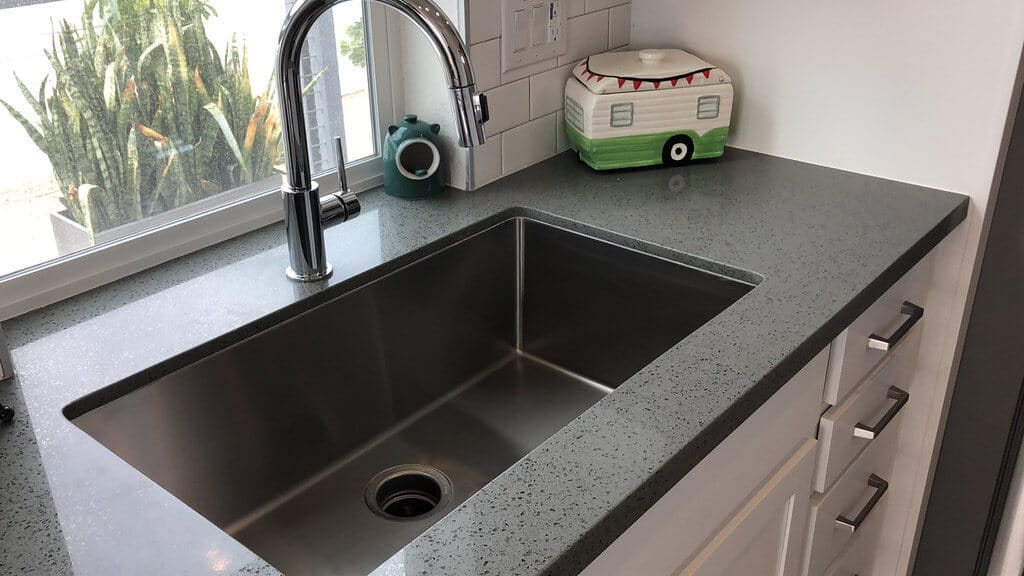 In conclusion, the unpleasant odor coming from your kitchen sink is likely caused by built-up waste. Regular cleaning and proper waste disposal can help to prevent these odors from occurring. And with good house design, you can further minimize the chances of experiencing unpleasant odors in your kitchen sink. By following these tips, you can keep your kitchen smelling fresh and welcoming, making it a more enjoyable space for all.
In conclusion, the unpleasant odor coming from your kitchen sink is likely caused by built-up waste. Regular cleaning and proper waste disposal can help to prevent these odors from occurring. And with good house design, you can further minimize the chances of experiencing unpleasant odors in your kitchen sink. By following these tips, you can keep your kitchen smelling fresh and welcoming, making it a more enjoyable space for all.
